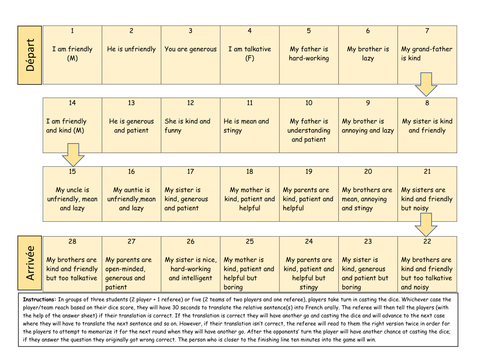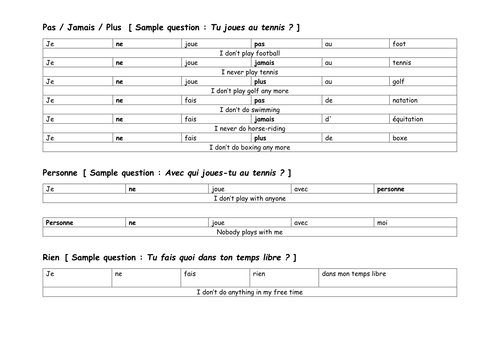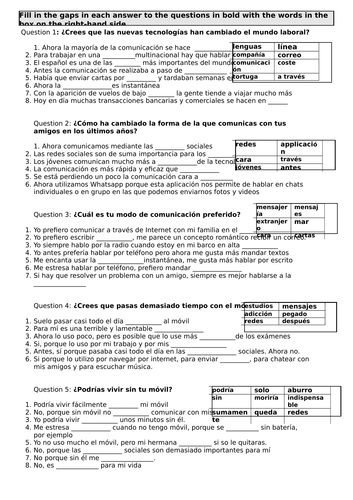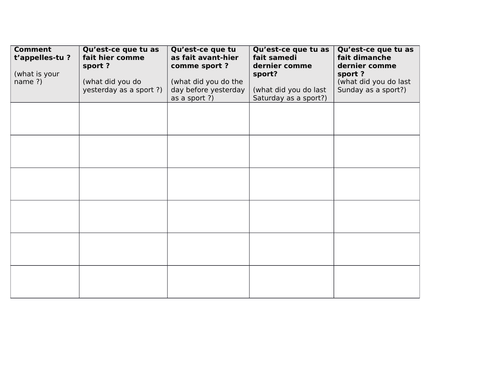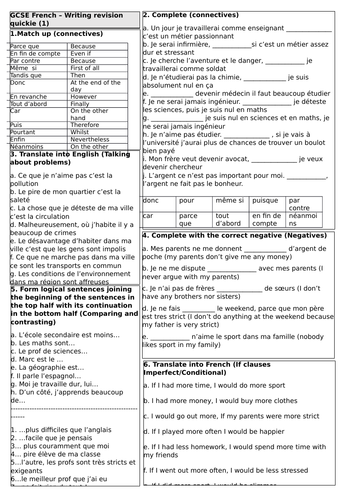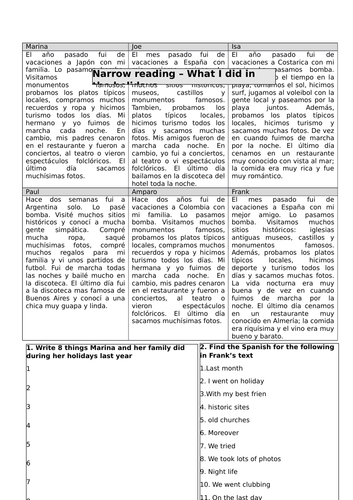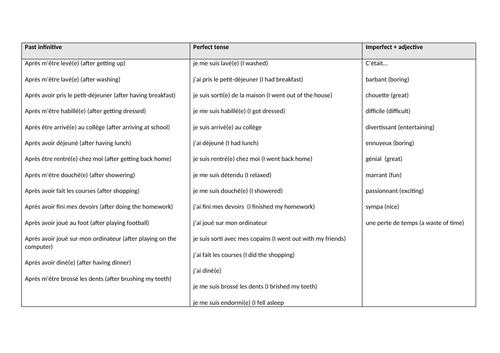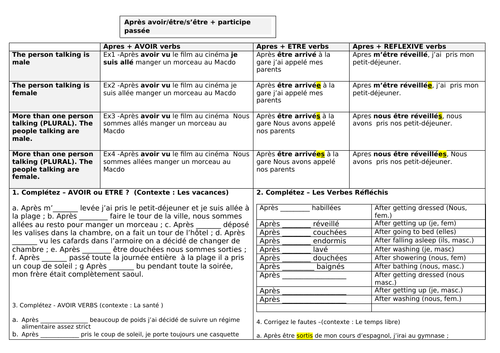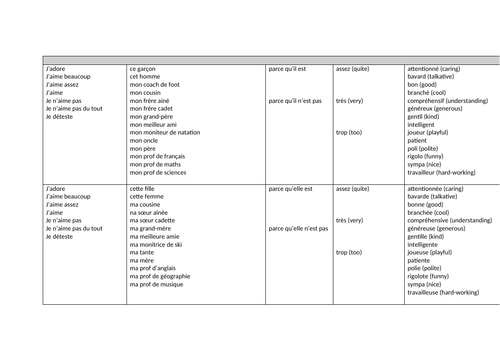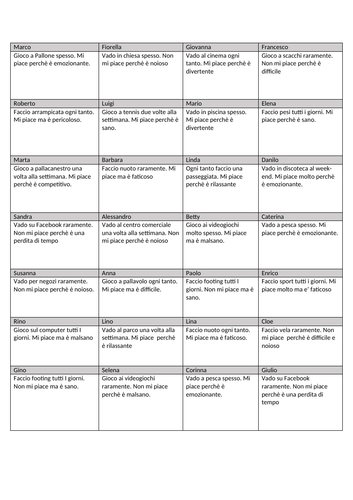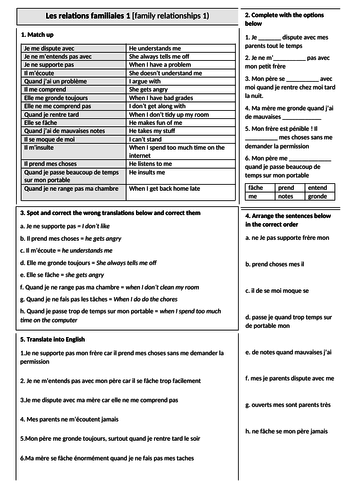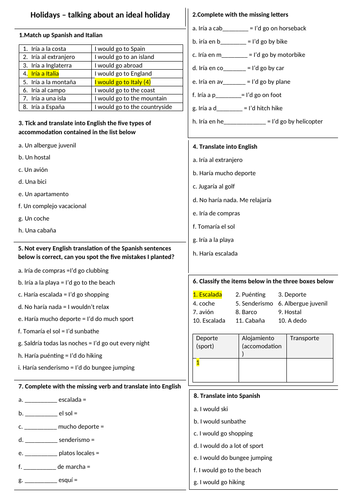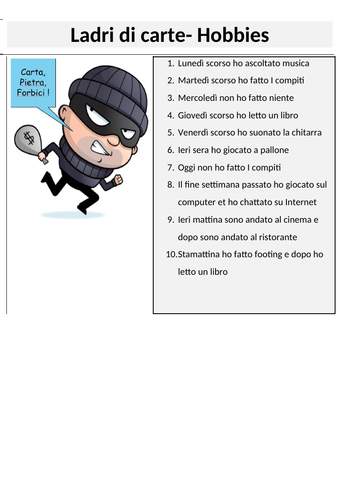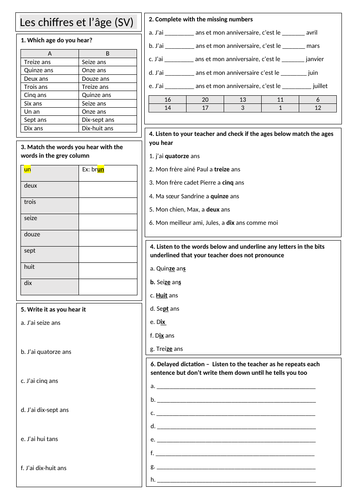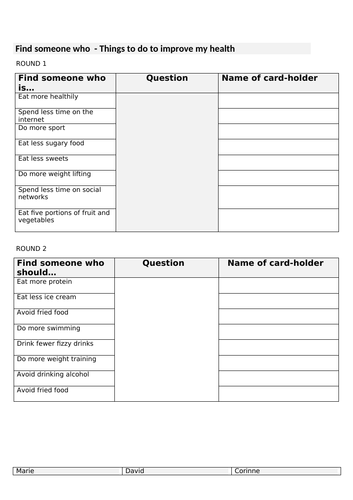
383Uploads
3148k+Views
5746k+Downloads
All resources

KS3/4 French - Oral or Written translation board game on character description with answer key
Instructions: In groups of three students (2 player + 1 referee) or five (2 teams of two players and one referee), players take turn in casting the dice. Whichever case the player/team reach based on their dice score, they will have 30 seconds to translate the relative sentence(s) into French orally. The referee will then tell the players (with the help of the answer sheet) if their translation is correct. If the translation is correct they will have another go and casting the dice and will advance to the next case where they will have to translate the next sentence and so on. However, if their translation isn’t correct, the referee will read to them the right version twice in order for the players to attempt to memorize it for the next round when they will have another go. After the opponents’ turn the player will have another chance at casting the dice; if they answer the question they originally got wrong correct. The person who is closer to the finishing line ten minutes into the game will win.
I do a round in writing (students write on miniwhiteboards or iPads) then one or two orally changing partners each time. Students love it but adequate prep essential.

KS2/3 French - Oral translation board game on French basics (personal info)
Instructions: In groups of three students (2 player + 1 referee) or five (2 teams of two players and one referee), players take turn in casting the dice. Whichever case the player/team reach based on their dice score, they will have 30 seconds to translate the relative sentence(s) into French orally. The referee will then tell the players (with the help of the answer sheet) if their translation is correct. If the translation is correct they will have another go and casting the dice and will advance to the next case where they will have to translate the next sentence and so on. However, if their translation isn’t correct, the referee will read to them the right version twice in order for the players to attempt to memorize it for the next round when they will have another go. After the opponents’ turn the player will have another chance at casting the dice; if they answer the question they originally got wrong correct. The person who is closer to the finishing line ten minutes into the game will win.
I do a round of written transl and one of oral changing partners

KS3 French - Sentence builder and other resources on adjectival agreement + family
A sentence builder, a written translation board game (players writing on mini boards) and a set of oral drills. All of them recycling the same words.
Materials target only 1,2 and 3 person singular of verb to be.

Year 7/8 French - Scaffold for ILRs (Implicit Learning Routines)
Scaffolding sheets to use in support of the following daily ILRs
- Register routine to elicit use of expressions indicating emotional states or feelings
- Small talk about what one did yesterday, last weekend, etc.
- Exit ticket routine at end of lesson : what are you going to do this eve, tomorrow, weekend, etc.
- Grumpy time routine (teacher ask questions and students must answer always in the negative usin different negative structures each time)

KS4 Spanish - Gap-fill on and Vocab builder on new technologies
1. A vocab builder
2. Cloze task : a set of key questions on new technologies (below) and a range of model answers which have been gapped.
¿Crees que las nuevas tecnologías han cambiado el mundo laboral?
¿Cómo ha cambiado la forma de la que comunicas con tus amigos en los últimos años?
¿Cuál es tu modo de comunicación preferido?
¿Crees que pasas demasiado tiempo con el móvil?
¿Podrías vivir sin tu móvil?
¿Cuáles son las ventajas principales de Internet?
¿Cuáles son las desventajas principales de Internet?

KS3 French - Talking about hobbies in the past
Sentence builder
Consolidation
Reading comprehension
Survey

KS3 Spanish - Pool of resources on talking about a past holiday
Includes:
A sentence builder
Two pages of narrow reading tasks
One page of narrow reading tasks + translation recycling same vocab
A vocab builder
A survey

KS3/4 French - Après + past infinitive (pool of resources)
A sentence builder and other resources to practise the use of Après + past infinitive

KS3/4 French writing - Modelling the use of Après + past infinitive
A sentence builder + a set of consolidation activities

KS3 French - Talking about people (positive and negative traits)
Sentence builders and some consolidation work as follow-up

Beginner Italian - Pool of resources on hobbies
Conti-style activities to introduce and recycle the same chunks of language over and over again

KS4 French - Family relationships (2 sentence builders + 5 revision quickies)
7 resources covering a wide range of vocabulary chunks.

French beginner to intermediate - Opinions about places in town
A sentence builder on expressing opinions about places in town and some consolidation activities recycling the same language

French KS3/4 - What I usually do in the morning
A sentence builder on morning routine. You can also find this resources in my collection of sentence builders entitled ‘Massive collection of 50+ sentence builders’

KS3 / 4 Spanish - Sentence builder on holidays in the conditional with pool of activities
(1) A sentence builder presenting the structure ‘if I could I would go’ + transport+ accommodation + activities in the conditional
(2) consolidation exercises recycling the vocabulary
(3) oral scaffold for conversation / survey on topics

KS3 (beginner) Italian - Talking in the passato prossimo (hobbies and opinions)
A sentence builder for a first lesson on Passato Prossimo conti style + narrow reading texts + consolidation + find someone who

KS3/4 Spanish - Lo bueno e lo malo de mi barrio (vocab building)
(1) A glossary and a wide range of activities on the positives and negatives of my neighbourhood.(2) a match up (hot potatoes) starter /plenary. Challenging. I have used it successfully with my yr 9 top set but it also suitable for KS4 groups of average ability.

KS2 French - Micro-listening enhancers on Telling one's age / Numbers
Two documents: student and teacher versions

KS3/4 - Things to do to stay healthy (pool of resources across skills)
A pool of resources a la Conti covering a range of skills (e.g. sentence builder, narrow readings, no snake no ladders, find someone who, vocab builders)

